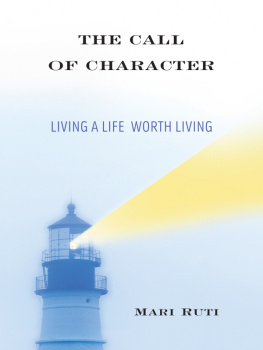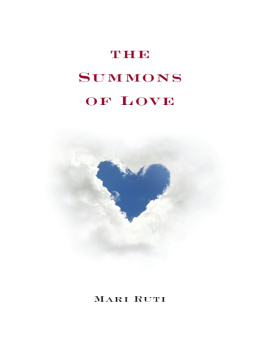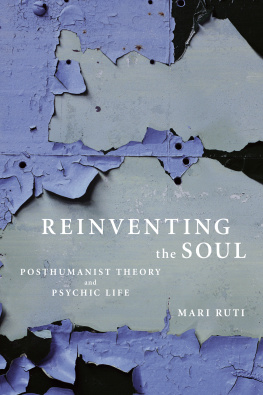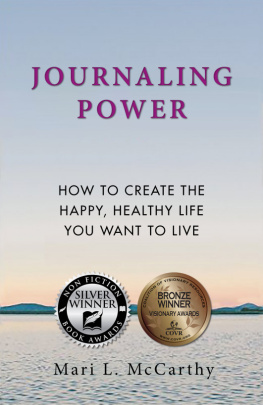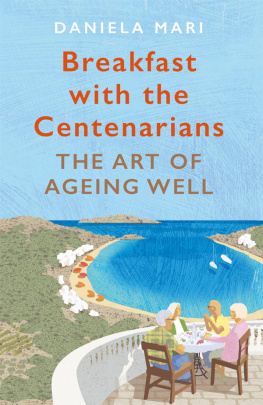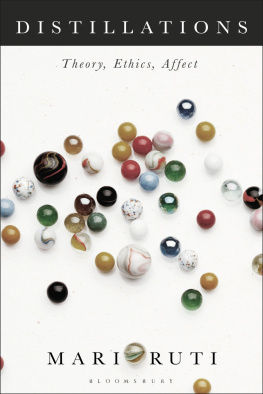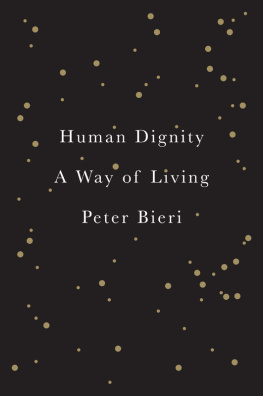THE CALL OF CHARACTER
The Call of Character
Living a Life Worth Living
Mari Ruti
Columbia University Press
New York
Columbia University Press
Publishers Since 1893
New York Chichester, West Sussex
cup.columbia.edu
Copyright 2014 Mari Ruti
All rights reserved
E-ISBN 978-0-231-53619-6
Library of Congress Cataloging-in-Publication Data
Ruti, Mari.
The call of character : living a life worth living / Mari Ruti.
pages cm
Includes bibliographical references and index.
ISBN 978-0-231-16408-5 (cloth : alk. paper)
ISBN 978-0-231-53619-6 (e-book)
1. Character. 2. Conduct of life. I. Title.
BJ1521.R88 2013
170'.44dc23
2013008069
A Columbia University Press E-book.
CUP would be pleased to hear about your reading experience with this e-book at .
Cover design by Mary Ann Smith
Cover photograph by Tetra Images
To AZ
I wrote this book for you before I even met you.
CONTENTS
One of the peculiarities of this book is that it presents relatively complex ideas in relatively simple language. I chose this approach because I believe that my topicthe question of what makes each of us a unique and idiosyncratic charactershould be accessible to readers beyond the academy. At the same time, I have sought to avoid the overly simplistic tone of much of the popular writing on the theme. When self-help or New Age gurus tackle the question of what it means to lead a fulfilling life, the kind of life that feels worth living, they tend to advocate a streamlined program of (concrete or spiritual) steps that is supposed to lead to a harmonious existence, thereby sidestepping all the ways in which human life is not designed to be harmonious. Likewise, they tend to fall back on an untheorized notion of what it means to be a human being in the first place, talking as if the matter were completely straightforward. Its not. As a result, if this book has a goal, it is to remain faithful to the complexities of human life without resorting to the mystifications of specialized academic idiom.
Three interventions run throughout this book that are meant to counter the manner in which the so-called good life is usually discussed in our culture. The first asserts that self-cultivation is not a matter of nurturing an essential core of being that makes us who we are, but rather of dwelling in the world in ways that allow us to add ever new layers of meaning into an identity that is always in the process of forming itself. That is, I start from the premise that our self is not a private possession (or achievement), but rather something we construct gradually through our engagement with our surroundings, including other people. Second, I argue that our quest for existential equilibrium is not only largely unrealistic, but perhaps also somewhat undesirablethat there may be something quite hollow about our cultural ideal of a balanced, composed, and unruffled life. Pointing out that sometimes it is the most tormented lives that are also the most rewarding, I propose that there might be advantages to a life that is a little neurotic but also hugely ardent and committed. Third, I posit that there is an almost astonishing specificity to human desire and that it is precisely this specificity that underpins our attempts to actualize our character. I believe that the more alienated we are from this specificityfrom what the French psychoanalyst Jacques Lacan called the truth of our desirethe more alienated we also are from our character. Conversely, the more loyal we stay to this specificity, the better we are able to resist the dominant social norms that strive to suppress our character.
I evoke Lacans name in part to alert the reader to the fact that many of the insights of this book are indebted to his thinking. But I also evoke it in order to render concrete the main rhetorical dilemma of this booknamely, that it draws on the work of some of the most demanding theorists of the previous century while at the same time trying to maintain a mainstream-friendly tone. Not only is this combination hard to achieve, but it raises some thorny conceptual concerns. Thinkers in my fieldcontemporary theorytend to be proud of the impenetrability of its rhetoric, and with good reason, for they see this impenetrability as a theoretical intervention in its own right; exasperated by the notion that meaning should be transparent and easy to process, they often intentionally create an opaque textual surface in order to force the reader to grapple with the ways in which meaning is never obvious but open to a variety of interpretations. One might even say that there is an ethics of a sort to this willful opacity in the sense that it seeks to challenge the lenses we customarily use to comprehend the world, thus opening a space for alternative lenses, alternative points of view. I have a deep-seated respect for this attitude. Yet I also admit to being increasingly impatient with texts whose convoluted rhetoric hides the fact that the concepts being formulated are not, in the final analysis, very difficult at all. When I feel that I can state in twenty-five pages of clear prose what a book I am reading spends three hundred torturous pages articulating, I experience an exasperation of my own. This exasperation is one of the motivating factors of this book: it explains, in part, why I have made the rhetorical choices I have.
One might say that my deliberately lucid prose is my little act of defiance, my way of heeding the call of my character, for I never feel as connected to my writing as when I adopt this style. The second component of the book that grates against the conventions of my field is its understated but irrepressible hopefulness. For personal reasonshaving to do with a relatively painful history of both material and emotional deprivationI have never been able to fully accept contemporary theorys insistence on our lack of agency and disempowerment in relation to the world. Simply put, I have not been able to afford the idea that I have no way of actively improving my lot. At the same time, experience has taught me what I repeatedly communicate in this booknamely, that there is a difference between, on the one hand, the facile notions of self-improvement and positive thinking that circulate so widely in our culture and, on the other, the act of mindfully stepping into the cadence of a complicated life; I have learned that the easy answers that crowd our collective space have no teeth, that they cannot even begin to bite into the formidable and often genuinely frightening endeavor of living, relating, andlets not forget about thiscarrying on when we no longer see the point of it all. Particularly when it comes to experiences that cause us suffering, our cultures easy answers are almost patronizing in their cheerfulness. This is why the optimism of this book is cautious and keenly aware of its limits. And it is also why its propositions are tentative at best, shying away from the insincere certainties of prescriptive thought.

